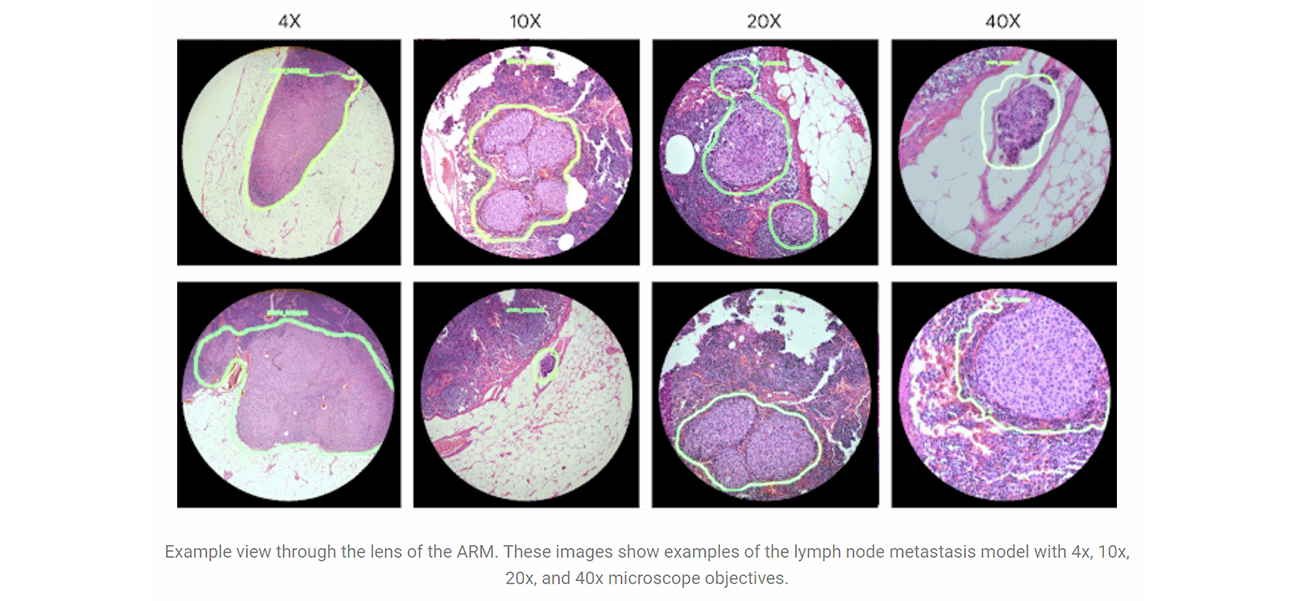An Augmented Reality Microscope for Cancer Detection
Published Wednesday April 18, 2018
Recently in a talk delivered at the Annual Meeting of the American Association for Cancer Research, researchers at Google AI Healthcare presented a paper titled “An Augmented Reality Microscope (ARM) for Real-time Automated Detection of Cancer”. In the presentation the authors describe a prototype microscope that combines two powerful emerging technologies, augmented reality and machine learning, to assist pathologists with the detection of cancerous cells.
The researchers state, “Microscopic review of tissues on glass slides is the gold standard for cancer diagnostics and provides fundamental insights into cancer biology. Using digital images, artificial intelligence (AI) algorithms have been shown to improve diagnostic accuracy and provide quantitative metrics that can not be provided on glass tissue slides alone; however, they require investment in a digital pathology workflow.”
What’s unique about the ARM concept is that it is designed to integrate with a standard optical microscope. The specimen image is transferred to a pre-trained convolutional neural network that identifies potentially cancerous cells and highlights those areas using an augmented reality display integrated with the microscope optics. A highly optimized GPU-enabled process minimizes system latency, allowing the pathologist to move the specimen slide in real time without visual disruption. The result: a “smart” microscope that supplements, but doesn’t replace, the pathologist’s expertise and experience. Read the entire Google Research blog here.
Most manual inspection processes in healthcare, manufacturing, aerospace, automotive and other industries are subject to inaccuracies due to operator health, experience, fatigue level and other factors. Combining machine learning with augmented reality creates opportunities to develop a multitude of smart inspection devices that provide intelligent real-time user feedback, resulting in greater process accuracy and throughput. Developing these systems are challenging however, as they may require expertise in product design, augmented reality, image-processing hardware, custom software, machine learning, industrial scanning and other technology fields. Kinetic Vision is uniquely qualified to create project teams that have the skill set diversity needed to develop the smart inspection devices of the future. Contact us to discuss your inspection challenges today.

